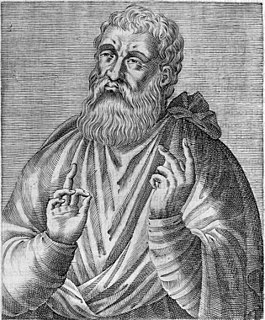A Quote by Pope Leo I
A true worshipper is one whose mind has not been defiled with any false belief.
Related Quotes
Religion becomes a matter of belief, and belief acts as a limitation on the mind; and the mind then is never free. But it is only in freedom that you can find out what is true, what is God, not through any belief; because your belief projects what you think God ought to be, what you think ought to be true. If you believe God is love, God is good, God is this or that, your very belief prevents you from understanding what is God, what is true.
What Brahman is cannot be described. All things in the world — the Vedas, the Puranas, the Tantras, the six systems of philosophy — have been defiled, like food that has been touched by the tongue, for they have been read or uttered by the tongue. Only one thing has not been defiled in this way, and that is Brahman. No one has ever been able to say what Brahman is.
My point taken further is that True and False (hence what we call "belief") play a poor, secondary role in human decisions; it is the payoff from the True and the False that dominates-and it is almost always asymmetric, with one consequence much bigger than the other, i.e., harboring positive and negative asymmetries (fragile or antifragile). Let me explain.
Disease is the misery of our belief, happiness is the health of our wisdom, so that man's happiness or misery depends on himself. Now, as our misery comes from our belief, and not from the thing believed, it is necessary to be on the watch, so as not to be deceived by false guides. Sensation contains no intelligence or belief, but is a mere disturbance of the matter, called agitation, which produces mind, and is ready to receive the seed of error. Ever since man was created, there has been an element called error which has been busy inventing answers for every sensation.
Pragmatism asks its usual question. "Grant an idea or belief to be true," it says, "what concrete difference will its being true make in anyone's actual life? How will the truth be realized? What experiences will be different from those which would obtain if the belief were false? What, in short, is the truth's cash-value in experiential terms?
"True science has no belief," says Dr. Fenwick, in Bulwer-Lytton's 'Strange Story;' "true science knows but three states of mind: denial, conviction, and the vast interval between the two, which is not belief, but the suspension of judgment." Such, perhaps, was true science in Dr. Fenwick's days. But the true science of our modern times proceeds otherwise; it either denies point-blank, without any preliminary investigation, or sits in the interim, between denial and conviction, and, dictionary in hand, invents new Graeco-Latin appellations for non-existing kinds of hysteria!
If you have a belief and you come against an experience which the belief says is not possible, or, the experience is such that you have to drop the belief, what are you going to choose — the belief or the experience? The tendency of the mind is to choose the belief, to forget about the experience. That’s how you have been missing many opportunities when God has knocked at your door.
Either Christianity is true or it's false. If you bet that it's true, and you believe in God and submit to Him, then if it IS true, you've gained God, heaven, and everything else. If it's false, you've lost nothing, but you've had a good life marked by peace and the illusion that ultimately, everything makes sense. If you bet that Christianity is not true, and it's false, you've lost nothing. But if you bet that it's false, and it turns out to be true, you've lost everything and you get to spend eternity in hell.































